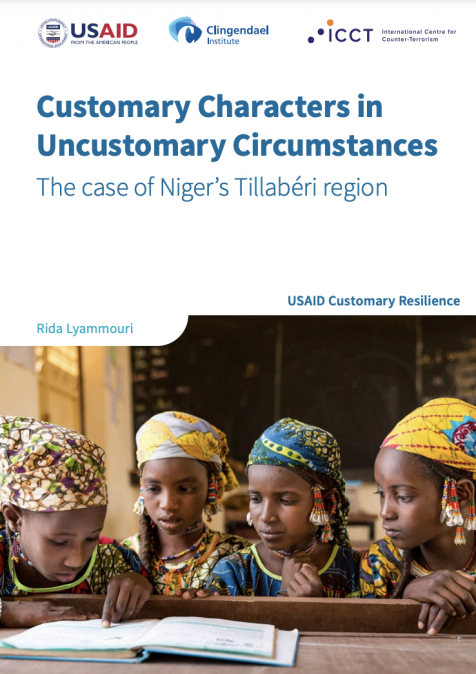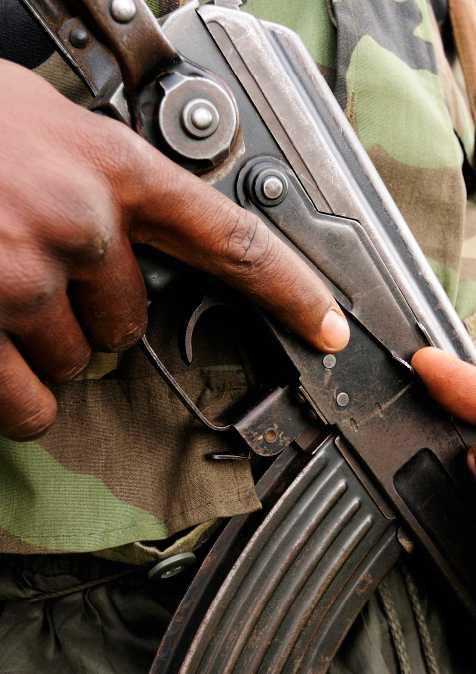In 2024, Africa’s sub-regional landscape reflects deepening tensions between normative commitments to regional integration and the emergence of competing political and security alignments. From institutional paralysis to political withdrawals, the coherence of Africa’s regional blocs is being tested. How are regional groupings adapting to these shifts, and what do current developments reveal about the state of regionalism across the continent? This panel will assess the evolution of Africa’s sub-regional orders, focusing on cases where fragmentation has become increasingly visible, notably in the rupture between the Alliance of Sahel States (AES) and ECOWAS. It will explore whether Africa’s regional architectures can accommodate internal dissent without losing strategic relevance, and how competing political visions and external influences are shaping new dynamics of cooperation—or disintegration. Can regional blocs maintain their role as engines of integration and stability, or are we witnessing a drift toward selective alignments and ad hoc diplomacy?
RELATED CONTENT
-
July 21, 20222021 was a year of global geopolitical disruption and geo-economic upheaval. As events gather momentum, the world enters a period of geopolitical and geo-economic transition; the end of one historical cycle foreshadowing the uncertain prospects of a new one. We are henceforth, in presen...
-
July 21, 2022كانت سنة 2021 سنة اضطراب جيو-سياسي وانقلاب جيو-اقتصادي عالميين. ومع تزايد زخم الأحداث، دخل العالم فترة تحول جيو-سياسي وجيو-اقتصادي تعلن نهاية دورة تاريخية وتُنبِّؤ بآفاق غير مؤكدة لدورة جديدة. وعليه، فإننا من الآن فصاعداً أمام تغير عالمي حقيقي ينطوي على نقاط ضغط متعددة وقوىً دافعة جيو-س...
-
July 20, 2022كانت سنة 2021 سنة اضطراب جيو-سياسي وانقلاب جيو-اقتصادي عالميين. ومع تزايد زخم الأحداث، دخل العالم فترة تحول جيو-سياسي وجيو-اقتصادي تعلن نهاية دورة تاريخية وتُنبِّؤ بآفاق غير مؤكدة لدورة جديدة. وعليه، فإننا من الآن فصاعداً أمام تغير عالمي حقيقي ينطوي على نقاط ضغط متعددة وقوىً دافعة جيو-س...
-
July 20, 2022L'année 2021 a été le théâtre de perturbations géopolitiques et de troubles géoéconomiques à l'échelle mondiale. À mesure que les événements s'accélèrent, nous entrons dans une période de transition géopolitique et géoéconomique ; la fin d'un cycle historique laissant présager les persp...
-
July 20, 20222021 was a year of global geopolitical disruption and geo-economic upheaval. As events gather momentum, the world enters a period of geopolitical and geo-economic transition; the end of one historical cycle foreshadowing the uncertain prospects of a new one. We are henceforth, in presen...
-
June 30, 2022In this episode of Africafé, Rida Lyammouri will talk about the ongoing conflicts in the Sahel, evoking the instability in Mali and Burkina Faso and suggests ways forward for greater engagement from the international community in helping fragile states in the region. ...
-
 AuthorsLaura SandersMay 12, 2022An HRW report details the massacre of at least 300 civilians in the central Malian town of Moura — the deadliest single atrocity in the country’s decade-long armed conflict. Most of the victims were from the Peuhl ethnic group. The widespread political and social exclusion of the Peuhl puts them at further risk of this type of violence and drives a cycle of grievances and fear that empowers violent extremist organizations (VEOs) and impedes peacebuilding. National governments and in ...
AuthorsLaura SandersMay 12, 2022An HRW report details the massacre of at least 300 civilians in the central Malian town of Moura — the deadliest single atrocity in the country’s decade-long armed conflict. Most of the victims were from the Peuhl ethnic group. The widespread political and social exclusion of the Peuhl puts them at further risk of this type of violence and drives a cycle of grievances and fear that empowers violent extremist organizations (VEOs) and impedes peacebuilding. National governments and in ... -
 AuthorsMarch 16, 2022Of all the regions included in this report series, Tillabéri is the region that scores best when it comes to both general community resilience, as well as traditional and religious authorities’ functioning. The region is not as exposed to shocks as Est (Burkina Faso) and Ménaka (Mali), and its ability to recover from shocks is high compared to the other regions. Trust in traditional and religious authorities is comparatively high as is their equal treatment of different subgroups in ...
AuthorsMarch 16, 2022Of all the regions included in this report series, Tillabéri is the region that scores best when it comes to both general community resilience, as well as traditional and religious authorities’ functioning. The region is not as exposed to shocks as Est (Burkina Faso) and Ménaka (Mali), and its ability to recover from shocks is high compared to the other regions. Trust in traditional and religious authorities is comparatively high as is their equal treatment of different subgroups in ... -
March 9, 2022The Global Terrorism Index (GTI) is an annual report produced by the Institute for Economics & Peace (IEP). Now on its 9th edition, the GTI provides a comprehensive summary of the key global trends and patterns in terrorism. It analyses a number of vital aspects of terrorism such as...
-
 AuthorsMarch 7, 2022More than two years ago I wrote in a report: “The current downward security trends in Mali, Niger, and Burkina Faso should serve as a wake-up call for the states in the Gulf of Guinea, mainly Ivory Coast, Ghana, Togo, and Benin.” Recent attacks in the northern Ivory Coast and Benin show that signs of earlier years now have taken on unique characteristics. Signs of the expansion of violent extremist organizations (VEOs) to coastal states have been there since at least since 2015. The ...
AuthorsMarch 7, 2022More than two years ago I wrote in a report: “The current downward security trends in Mali, Niger, and Burkina Faso should serve as a wake-up call for the states in the Gulf of Guinea, mainly Ivory Coast, Ghana, Togo, and Benin.” Recent attacks in the northern Ivory Coast and Benin show that signs of earlier years now have taken on unique characteristics. Signs of the expansion of violent extremist organizations (VEOs) to coastal states have been there since at least since 2015. The ...


